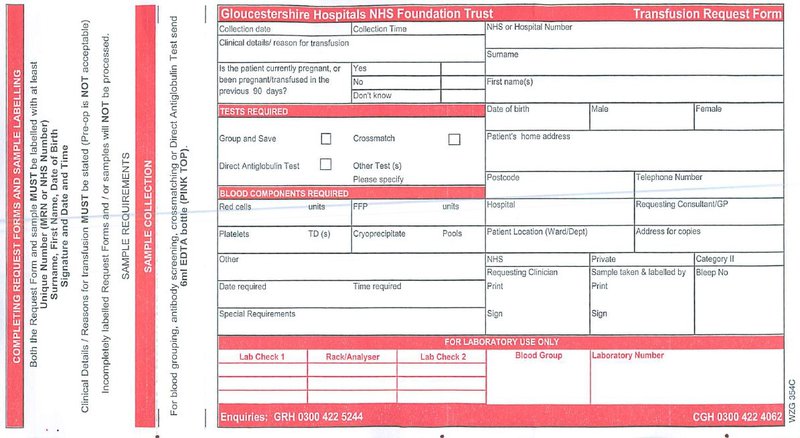Making requests and requesting additional tests
The quality of laboratory investigations can depend not only on the quality of the specimen, but also on the quality of the information which we receive with the specimen. Inadequate information may lead to sample rejection, inappropriate testing or a delay in testing whilst further information is sought.
The laboratories accept samples accompanied by a standard laboratory request form or, for General Practitioners using the ICE requesting system, a printed ICE request form.
Requesting the right investigation
Please consult the tests and samples database for information regarding the the appropriate samples and investigations to request to assist with diagnosis and patient monitoring. All the standard specimens and requests are included in the database. If you are considering submitting a sample or requesting an investigation which is not listed, please telephone the relevant laboratory first to discuss the particular case.
Getting the right sample
Details of the correct sample containers, collection methods, storage and transport requirements are given in the tests and samples database.
The use of non-standard sample containers can result in leakage and loss of samples. Please use only the sampling materials supplied by the laboratory.
Ensure that the sample is correctly labelled.
Request forms
Correctly completed laboratory request form must accompany each sample. In most cases the request form is our only source of information about the patient. It is therefore important that the information supplied is as accurate, relevant and complete as possible. For full details please see Policy for Specimen and Request Form Labelling for Pathology Users.
Required information:
- Surname
- Forename in full
- Date of birth (not age)
- Unique identity number such as MRN number or NHS number or current residential address
- Date and time of sample
- Source of request
- Location for report (if different to the source)
- Requesting clinician
- Investigations required
- Relevant clinical details
- Specimen type and site information is also required for samples other than blood
- Patient category - i.e. NHS, private or category II
- GPs who want us to contact the GP out of hours service with results must also provide an up to date patient telephone number on the request form.
Requesting additional tests: chemical pathology
Additional tests may be added to the original request by contacting the laboratory but ability to produce a valid result will be dependent on the stability of the analyte and how the sample was stored.
Serum and urine samples are generally stored at 4°C for 2 days after analysis. Some samples are stored at -80°C for up to 1 month if the original request was made for a special test.
Requesting additional tests: haematology
Additional tests may be added to the original request by contacting the laboratory. However, our ability to produce a valid result from the add-on test will be dependent on the availability of the appropriate sample, the stability of the analyte, how the sample has been stored, and the remaining sample volume.
Most Haematology samples are stored at 4oC post analysis to protect sample integrity. The department is usually able to perform further tests on stored samples as long as the additional request is made within the appropriate timeframe (see table below). Please note, these timeframes are from the time of venesection not from the time the sample was received by the laboratory.
| Additional test | Time from venesection |
|---|---|
| FBC, Blood Film | <24 hours |
| Reticulocyte Count | <48 hours |
| Malaria Screen | <4 hours |
| Flow Cytometry | <72 hours (peripheral blood samples) |
| Haemoglobinopathy / HbS Screening | <7 days |
| Coagulation tests | <4 hours |
| Serum B12 and Folate | <3 days |
| Intrinsic Factor antibodies | <10 days |
| Ferritin (plasma or serum) | <5 days |
| Infectious Mononucleosis Screen | <24 hours (EDTA sample) or <1 week (gold-top serum sample) |
| Cryoglobulins, Cold agglutinins | Cannot add on as samples must be kept at 37°C until analysis |
| ESR | <6 hours (if we have received a S-Sedivette) |
Requesting additional tests: microbiology
It may be possible to add additional tests or investigations to the original request. Please contact the laboratory to discuss.
The following storage times apply to routine Microbiology specimens:
| Minimum retention period | |
|---|---|
| Serum samples | 1 year |
| CSF, sterile fluid and tissue samples | 1 month |
| Faeces | 1 week |
| Swabs | 1 week |
| Chlamydia samples | 1 week |
| Sputum | 2 days |
| Urine | 2 days |
Laboratory request form images
Chemical Pathology / Haematology & Immunology form
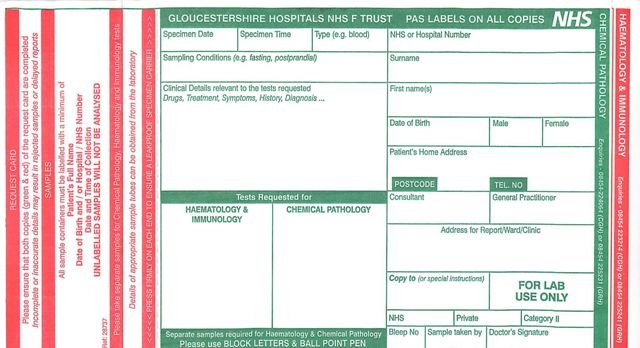
Non Gynae Cytology form
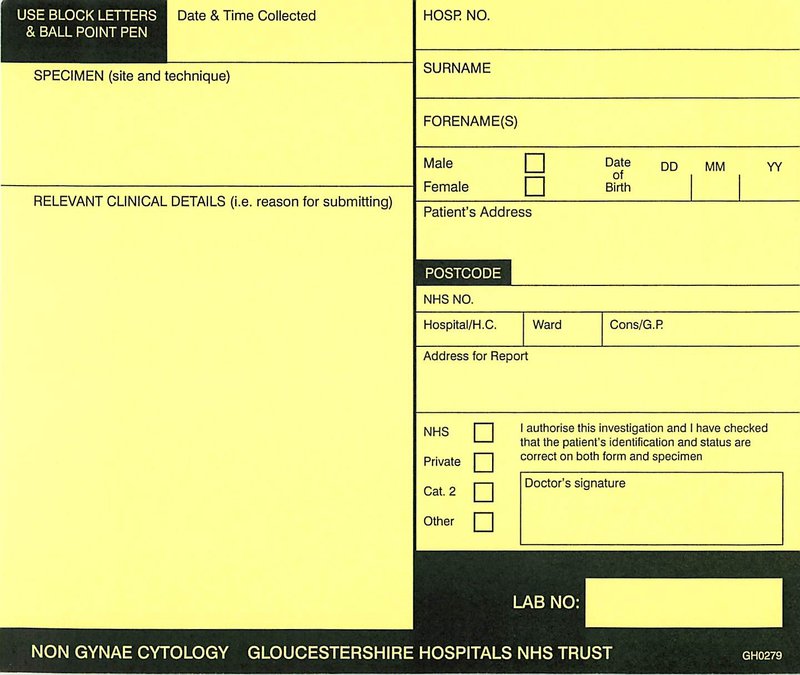
Histopathology form
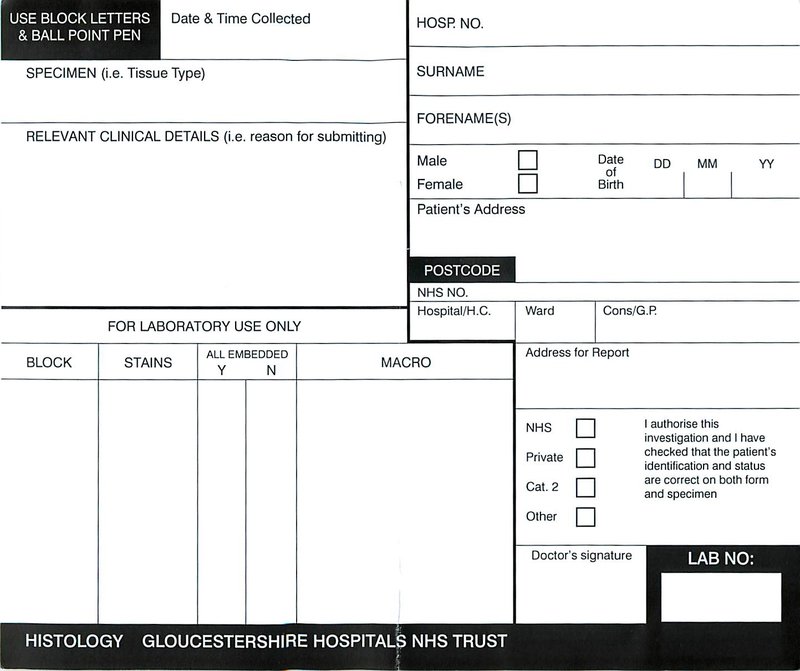
Microbiology form
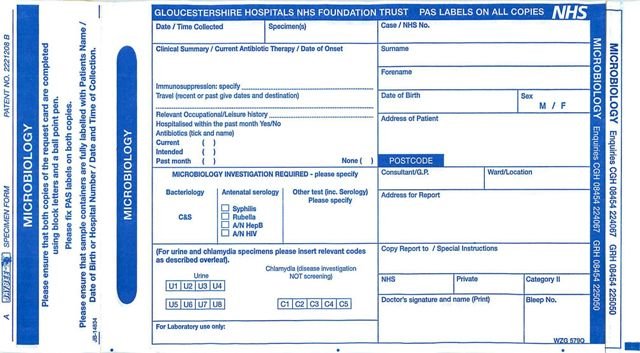
Transfusion form
